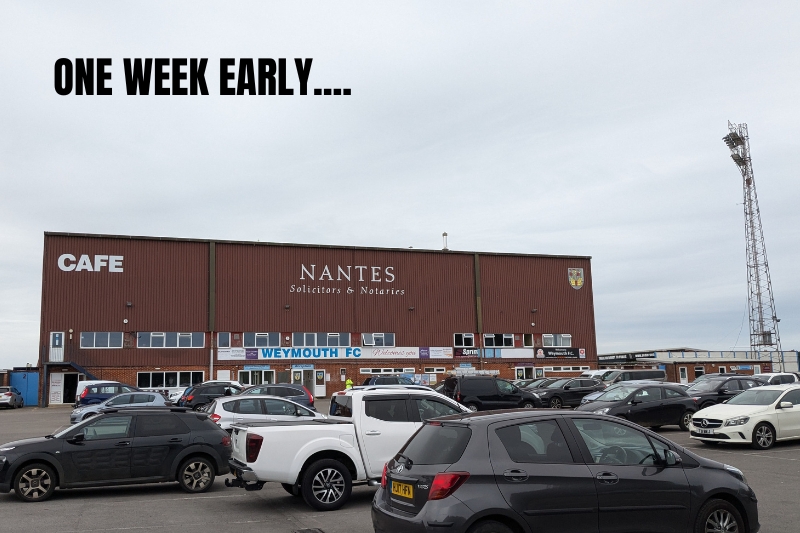The season starts
The last time I was on the A303, snaking past Stone Henge in the south of England, I was at the tail end of an eight-hour traffic jam.
With two kids in the back and the sun in my eyes, I must have used more swear words that trip than in all of high school. The Dartmoor holiday was one I’d cherish. But I vowed never to travel on that cursed two-lanes-into-one highway to druid hell ever again.
Until last Saturday. When I went to Weymouth.
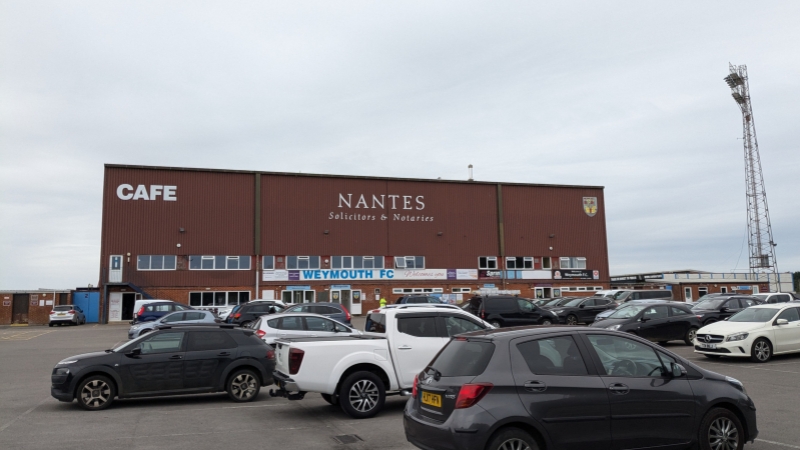
This trip marked the start of another season, one which will likely be even tougher than the previous two. Big teams coming down on banana skins. Wannabe big teams coming up on magic cheque books. That sort of thing.
Usually all my prep work takes place at my desk, and on video. But not this time. National League South clubs share video. That means going to games and writing crazy amounts of notes – like I used to do – is not necessary. Not by me anyway. Instead, it’s all downloadable, ready to be watched and pored over in detail.
But there’s one exception to that. Opening day.
Which is why I was on my way to the south coast, with notebooks and pens, for their match against Dorchester Town.
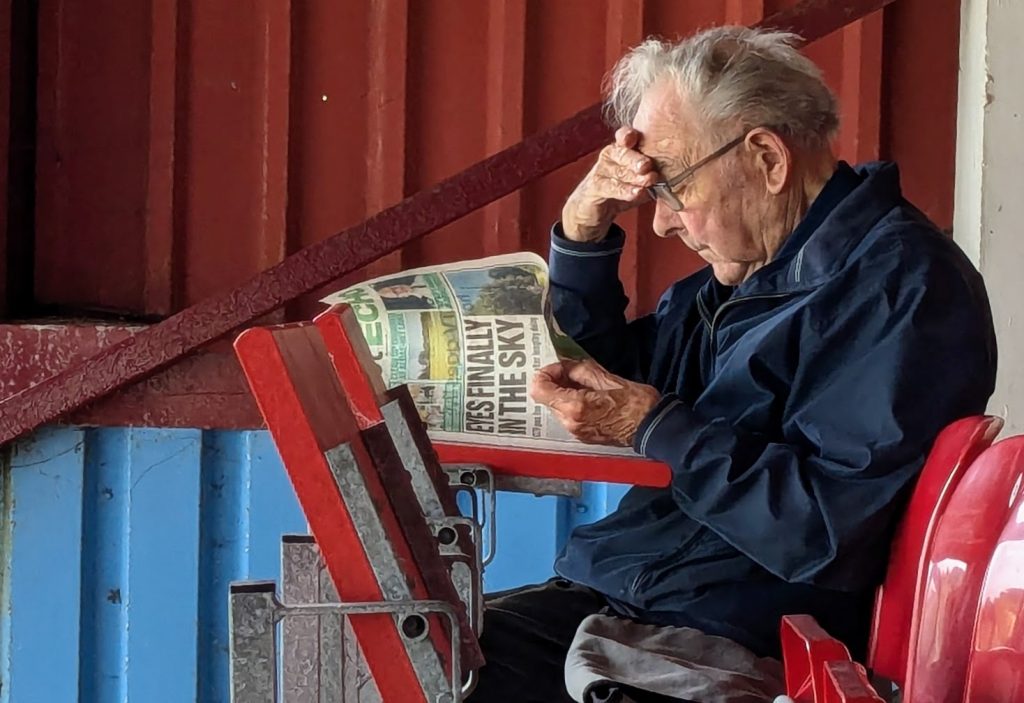
Despite planning for new life trapped at junction 9 of the M25, the journey went without a hitch. I left Kent early enough to allow for coffee stops and any hold-ups. I arrived early enough to watch the groundsmen warming up.
WEYMOUTH
Weymouth has one of those stadiums that my 8-year-old self used to go nuts for. An oversized main stand. Terracing everywhere, including the enclosed corners. And big floodlight towers visible from miles away. I used to draw stadiums like this during wet lunchtimes in primary school.
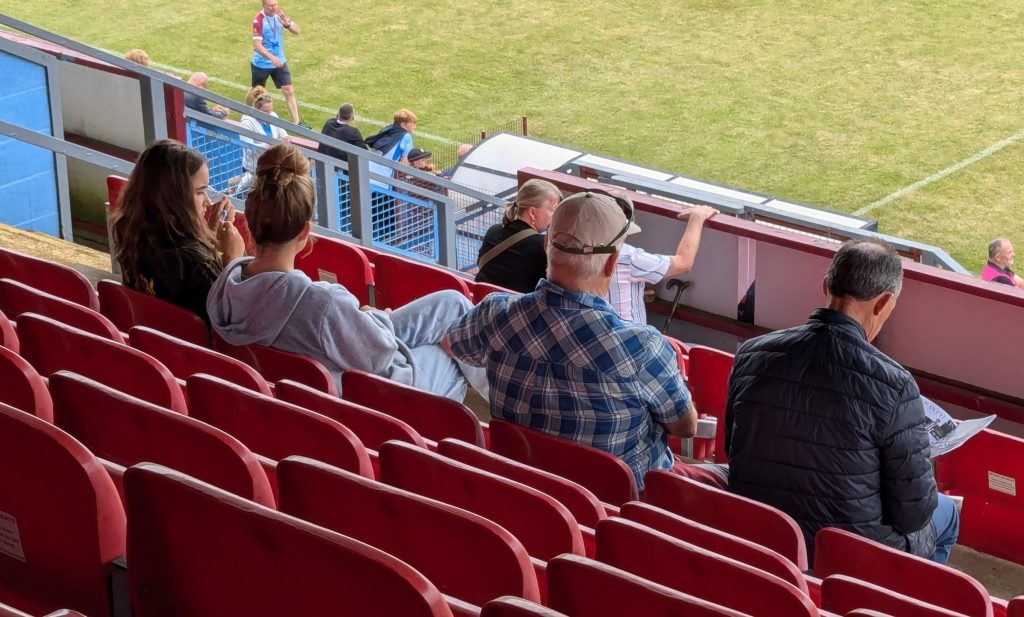
And I still go crazy for them. The view is excellent. What was state of the art 40 years ago, all steel and corrugated iron, has a charm nothing new can ever get close to. And when you’re this early you get your pick of the seat.
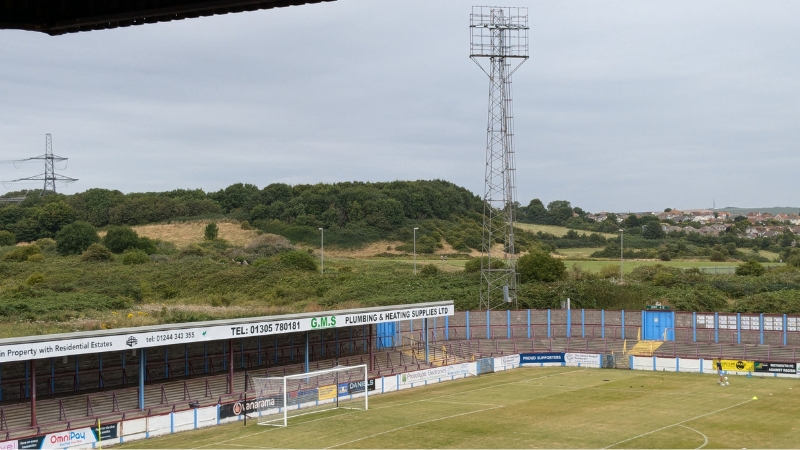
OLD SCHOOL REPORT WRITING
I mentioned this was about a different kind of report. Here’s how I used to operate.
I would head to a game in the usual way, arriving as early as I could, armed with pens, notes, an A4 pad, and pitch templates.
- The pitch templates gave me somewhere to write the line-ups, positions, and any general player movement.
- The notes served as a refresher of players, names, current form, and anything I’d picked up in the week before.
- The big pad was for two reasons. I didn’t need to worry about being neat and tidy and it made it easier to write on with frozen hands.
From kick-off to the final whistle I’d write constantly. No kidding. Big observations. Small ones. Anything. Even if the ball was out of play.
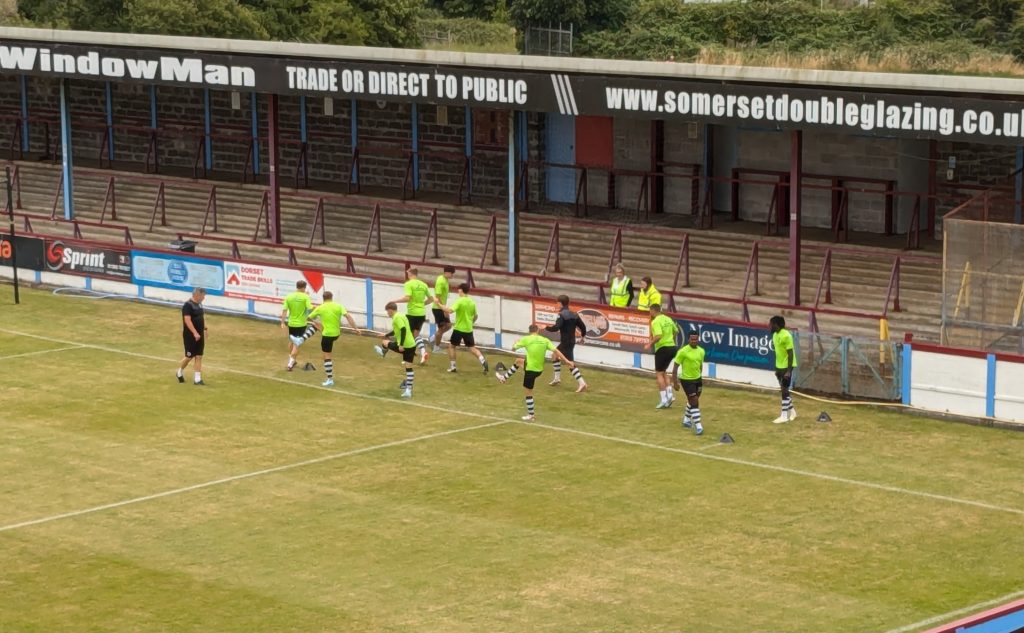
I wrote with such determination at a Leyton Orient game once that I heard people behind me speculating. What could I possibly be writing while their fullback was being treated for a calf injury?
They had a point. A lot of it was my own fear of missing something, or that my attention might waver. But there’s a lot to see during a match if you’re paying attention. Even when the game has stopped.
Who looks tired? Who is motivating his team mates? Are the subs paying attention or drifting off? I would also be tidying up other notes, or finishing thoughts.
SCRIBBLES AND DIAGRAMS
This was my plan in Weymouth. I used my same stream-of-consciousness note-taking style – writing everything down in order. And I couldn’t help but miss this way of doing things. No video. Just notes and knowledge. Scribbles and diagrams. Albeit with a ton of self-doubt, and that nagging feeling you’ve got nothing relevant written down and you’ve missed everything obvious.
ANOTHER APPROACH
As kick-off approached another scout with his notebook took a seat nearby. His approach was very different, and I’ll save that conversation for another post as it merits some time and thought.
He was far more experienced than me and generous enough to share what he’d come to know. It made a big impression and I left thinking that next time I’m at a game I’ll ditch my system and copy his.
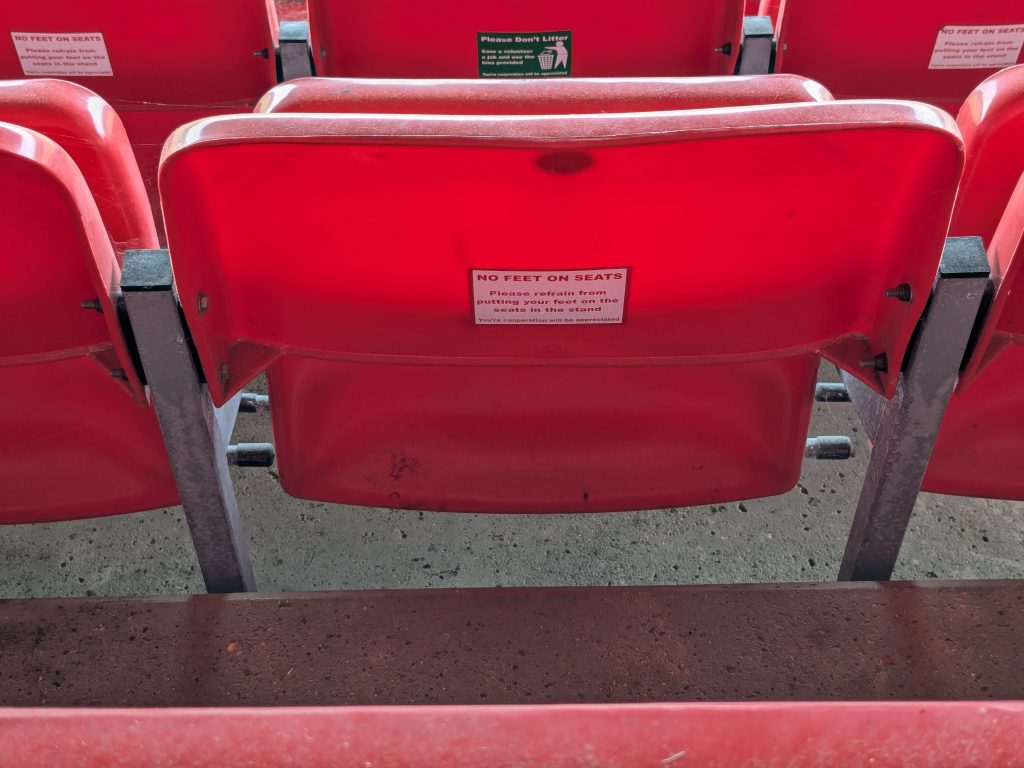
Like I said, more on that system another time.
CHANGES
After 90 minutes I got into my car and drove back east thinking we should beat Weymouth. They’d struggled against a better-than-expected Dorchester Town (step 3), and might prove to be a bell-weather opponent. The A303 remained clear, and the report was written up and sent by first thing Wednesday.
But even a week later I think my perspective on the game has changed. Not just how I go about analysing opponents, but the job itself. Is there a better way to go about note-taking? But also how realistic is it to aim higher? What are the obstacles? And is it worth trying to get over them.
I’ll deal with those questions, and the detail, next time.
